
Well, a while back I wrote a post (flash fiction) that introduced the protagonist. For those who need to refresh their memories (since its quite foggy and chilly these days *wink*) or require an introduction... click HERE.
Now... before you proceed to read any further, I advice you to read the earlier story (link given above) so as to get the drift... and avoid any disconnect.
He was mighty pleased at the simple yet effective way the 'solution' presented itself... and above all worked. It was quite innovative too. All Thanks to his senior colleague. He was beginning to feel at home... at ease with all the sudden changes that he had to encounter over the last month and half. Those of culture, tradition, language, gastronomic and climatic challenges, et al. Afterall, he had sailed half-way round the world to arrive here... on the shores of Bengal. He has managed quite well until now... managed to survive the transition between the known world and the unknown. He felt adventurous... maybe he need not learn the alien language afterall. He was a part of the Raj... at the end of the day. Or so he thought.
It was a weekend and the weather was pleasant. A perfect day for venturing out and exploring the area... on his own. In the evening there was a garden party... the khansamas (head cooks), khitmatgars (waiters), malis (gardeners) and the other servants would be busy with the arrangements already. There was an awful lot of servants he noted, people had far fewer servants back in England... except for the inhabitants of the Buckingham Palace of course. He checked the British made Smiths Empire contraption in his pocket... it was nearly breakfast time. He continued to read the newspaper. Rather pretended to read it... his mind was elsewhere. He thought about the things he had seen and heard in the last 6 weeks or so... in this British dominion.
Memsahib (the Governor General and Viceroy of India aka the Laat Sahib's better half) had taught the Khansamas about cutlery. The Bawarchis (cooks) were taught to make puddings, pies and pastries using local ingredients. Memsahib did not consider Indian food fit for the civilized masses (meaning the 'Goras'). They hated the smell of Indian foods being cooked. The Goras (Whites) had become self-absorbed and refrained themselves from learning anything about Indian Cuisine. While the Indians did not accept British food beyond the tea and the Ketchup. The tea was modified to 'Garam Chai' (Chai Hot tea Latte), and Ketchup was spiced up to Curry Ketchup... to suit the Indian palate. The Anglo-Indians (children from mixed marriages between the locals and the British) accepted the 'Western bread loaf' (Double Roti), cakes and cookies. In 1887, the British had opened a bakery in Delhi... which was doing decent business (this later became the giant known as the 'Britannia Biscuits Company'.)
To the displeasure of the Memsahib and other aristocratic Memsahibs, some British fell in love with Indian Cuisine and created their own versions: Mulligatawny soup, Jalfrezi, and Worcestershire Sauce. The British coined the term 'Bombay Duck' to describe a lizard like fish found under the piers of the Bombay dock. George V, had 'curry' for lunch almost everyday. In 1884, a group of nuns set up a factory in Meerut to manufacture 'Macaroni', 'Spaghetti', and 'Vermicelli'. (The Vermicelli has been well fused into Indian Cuisine as Sevian Kheer.)
What a strange name - 'Jalfrezi' - he had wondered, while a colleague had volunteered to enlighten him. The British created this method of reheating left-overs and the credit went to the then Governor General for the state of Bengal, Lord Marcus Sandys... who enjoyed spicy Indian foods. He is also credited with converting Tamarind/Jaggery Chutney into Worcestershire Sauce. In Bengali, 'Jhal' means 'spicy hot'. 'Jhal' led to 'Jal'. While 'Frezi' is thought to have been derived from the Urdu word 'Parhezi'... meaning 'a person with discriminating taste'. Some believe it is just a slang for 'Fried, zee!'; where, 'zee' is the Urdu word to emphasize on the instruction to fry.
'Mulligatawny Soup' was quite a tongue-twister for him... and his tongue had still not won the battle. But he found the history attached to it very interesting indeed. Indian cooks (during the British Raj) served a soup course to their rulers... who actually christened it thus. The name is derived from two words... from the Tamil language. 'Millagu' means 'pepper' and 'Thanni' means 'water'. So, the name 'Mulligatawny Soup' or 'Pepper water' was born. He smiled at the memory of his first encounter with this 'red-blooded' soup. He had almost called the fire brigade!
His mind now drifted to the 'Worcestershire Sauce'. In 1835, Lord Marcus Sandys, an ex-Governor of Bengal, approached chemists John Lea and William Perrins, whose prospering business in Broad Street, Worcester, handled pharmaceuticals and toiletries as well as groceries. He asked them to make up a sauce from a recipe which he brought back from India. While his lordship was apparently satisfied with the results, Messrs Lea and Perrins considered it to be an "unpalatable, red-hot fire-water" and consigned the quantity they had made for themselves to the cellars. During the stocktaking/spring clean the following year, they came across the barrel and decided to taste it before discarding it. To their amazement, the mixture had mellowed into an aromatic, piquant and appetizing liquid. They hastily purchased the recipe from Lord Sandys and, in 1838, the Anglo-Indian Lea & Perrins Worcestershire Sauce was launched commercially.
One of the myriad 19th-century pungent English sauces based on oriental ingredients, it had many imitators sporting pretentious names such as "British Lion" and "Empress of India". Its exact recipe remains a secret. All that is known is that it includes vinegar, sugar, soya sauce, molasses, tamarind, shallots, anchovies, ginger, chili, cloves, nutmeg and cardamom. He has yet to taste it though... the very mention of the word 'chili'... sets off alarm bells in his head.
Words can be deceptive. The 'Bombay Duck' taught him this lesson... without a shred of doubt. Expecting a well-cooked and delicious dish consisting of a member of the feathered species... he was instead greeted with a scaly inhabitant from the salty waters. He had been so overwhelmed by its 'fragrance' that he had choked and nearly fainted... and had to be carried away to safer environs. Later... yet another colleague tutored him.
'Bombay Duck' is not a 'Duck'. 'Duck' is a slang for the Hindi word 'Dak'. 'Dak' in Hindi stands for 'mail'. 'Bombay Duck' is a small fish normally called as 'Bumla'... found near the piers of Bombay (Mumbai). The fish is scaled, cleaned, filleted as strips, salted and dried. After it is dried, it has a very strong and distinct fishy odour. In an air tight jar, it can be stored indefinitely. The British could not say 'Bumla', so they called it 'Bombay Dak', referring to the smell of the 'Bombay Mail'. The fish was not transported by train... but the mail was. And the mail would gather/catch the strong fishy odour from the area where it was loaded. He was also told that fresh fish is used to make 'fish fry'. His GK has been constantly traveling northward... ever since his arrival.
The Memsahibs brought and planted new fruits: Apricots, Peaches, Pears, and Plums in the Nilgiri Hills. The British improved the local strawberry (Fragaria indica) in Mahabaleshwar. From England, they brought new vegetables and planted here: Cauliflower (Gobhi), Cabbage (Bund Gobhi), and Kohlrabi. The Memsahibs brought in flowers to decorate their homes, and planted: Carnations, Dahlia, Daisies, Gladiolas, Impatience, Lilies, Pansies, Petunias, Poinsettias (red), and some varieties of roses.
He was deep in thought... the punkah-wallah was at his job. Suddenly... the door was flung open and two servants rushed in. They spoke excitedly... simultaneously. It was a strange cacophony... he was baffled.
The Gowala (cow attendant) was saying, "I go up" over and over again... pointing to his right eye.
The other, a Coolie was saying, "We go down"... breathlessly.
He did not understand what they were trying to convey... even though the words were english sounding. His senior had indicated that the servants here spoke a kind of pidgin english. But he couldn't comprehend anything at all.
He sat there... stunned. Then with a wave of his hand... asked them to leave.
Still no sign of the breakfast...
He decided to skip it and explore the area instead. He could even have it at a restaurant... if he wanted to. He stood up... put on his hat and coat. His Chopdar (silver stick bearer)... an old man... handed him his walking stick. He set off...
It was quite pleasant outside... with a nip in the air. Few people or transport... on the road. He walked on...
He came across a few flower-sellers... on the pavement. The flowers looked fresh and he was struck by all the myriad kinds in a variety of colours. He stopped... to admire them. One the flower-sellers... an old woman... kept saying "bouni, bouni". He shook his head... and kept on looking at the flowers. Now, two others joined the old woman in chanting "bouni, bouni". Confused, he walked away.
Another seller... a younger woman... approached him. She had a young boy with her. They came beside him, with a bunch of flowers, "Take take, no take no take, ekbar toh see!"
At this he shook his head even more vigorously and quicked his pace.
Feeling quite hungry now... he looked at the shops... searching for a restaurant. He found a signboard proclaiming... "Mr. Beef Seafood Restaurant". There were some Chinese characters following it. He stood for a while with raised eyebrows... on the pavement across the road.
Moving on... he came across a few more signs. "Brain Disease Curing Set", "Oil Gates", "An Excellent Winding Smoke" and a small signboard which stated, "The slippery are very crafty".
He walked on... his mind still absorbing all of this... the newly acquired 'knowledge-cum-cultural orientation' that is.
After a while he came across another restaurant offering "Mixed Chow with Garlic Mud". By now he was quite famished... and decided to try out this one. But before he could push the door open, a Chinese man appeared before him, blocking the way... and respectfully said "No go". He tried to reason with him... but the man merely repeated those two words... each time.
He shrugged his shoulders and moved on... and after a while came across a bilingual signboard: "Bengal Famous Oil-Fried Shop".
He walked on and found himself staring at "Copulation Accessories"... with "No can do" written underneath.
He retraced his steps...
Photograph:
A British couple at the dining table attended to by the khidmatgars... during the British Raj. Pic courtesy: link.

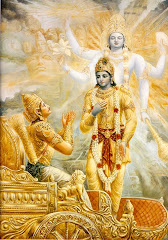



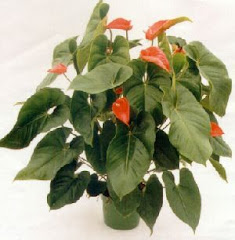


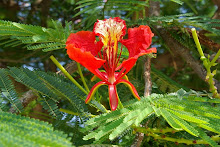

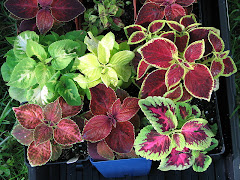
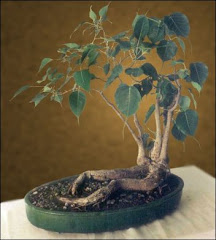


hmmm fiction... so all d nomenclature 2 dishes n al r ur creatv head's result or dat ws d way dey did it in real back den??? 4 pure fictionmust say u gt dat knack of building up stories well my frnd... dis fiction..post by post u jst miyt end up compiling a whole book rathr novel in ur name... keep entending dis fiction..v jst mite hv anothr ENGLISH AUGUST , only dis tym roshmi sinha as d author :)
ReplyDeleteHey superb story yaar... u sud also start a blovel...:D
ReplyDeleteu r good at it...:D
and my slow net connection prevents me from loading your blog. Pardon me if i don't comment regularly, hopefully my travels end this weekend..and i will get a broadband.
ReplyDeleteRoot to names of many dishes became clear after reading this post. Next time I order any of these, I will be reminded of history behind it .I always thought jhal in jalferzi had to do something with “Jhol “ in Bangla . By the way ‘ami bangala bhujhte pari …..not very fluent in speaking though ….. ‘motamoti’ as they call it . Somehow, the hidden satire kept popping up with lines like “his tongue had still not won the battle” …... By the way Roshmi did micro in title referred to length of the post ??? :-)
ReplyDeleteGood to know about the history behind the names of dishes :D
ReplyDeletesomehow,I am having problem posting comments here for some time.
ReplyDeleteI will come back and try again
Roshmi,
ReplyDeleteThanks for your wonderful comment at INDImag. I appreciate it. I'm following you as well :-) .
Like I said before, I'm amazed at how much you put into your posts and can imagine the research that goes into it. Hats off.
Loved reading the above and the bits about the origins of certain words/cuisines. A fellow author had this a long time ago if it interests you , but this is just a list and does not have a story woven into it ..
http://www.indimag.com/2008/06/23/origins-of-english-words-in-indian-languages/
Thats a great one Roshmi.
ReplyDeleteHow do u know so much history yaar????
Too good.
Take care.
Very nicely written! It's more fun reading fiction, when it revolves around real events..One reason why Dan Brown clicked! Like someone said, start a Blovel..:) You have a fan in me waiting! :)
ReplyDelete@ Sobhit: Ha! Ha! Thanks much!
ReplyDeleteThis is a fiction with liberal doses of history woven into it...
@ Sid: :D
ReplyDelete@ Sunil: Tai naki! Khub bhalo... jene khub khushi holam :)
ReplyDeleteBut how did you learn it... ?? Is it 'coz bangla has a lot of similarities with hindi..??
Kintu aami sindhi bujhte pari na :(
Maybe if I try I might understand a bit... since it has some similarities with the Gujarati language... which inturn has some similarities with hindi :)
'Jhal' and 'jhol' are worlds apart even though they are separated by a single alphabet.
You have talked about getting to know about the history behind the names of dishes... from my post.
Kintu... apni aar ekta jinish overlook korechen. Gowala and Coolie... ki bolte cheyeche bolun to... ???
This post is a little over 1000 words... hence is called 'micro fiction'. If it was within 1000 words... then it could have been classified as 'flash fiction' :)
P.S. I have removed the Bryan Adams Music video widget. Hope the blog is loading faster than before.
P.P.S. I am reachable at: roshmi [dot] mahesh [at] gmail [dot] com
@ Dhiman: Dhonnobad!
ReplyDelete@ BK Chowlaji: Sure Chowlaji!
ReplyDeletehey my reply to your comment if waiting on my blog
ReplyDeleteAwesome, Roshmi. Stories revolving around facts have always fascinated me. This one was quite a treat for me. Such a spicy story! Ah, my mouth watered a couple of times. Too good!
ReplyDeleteAnd copulation accessories???!! lol.. :P
Hey Roshmi
ReplyDeleteMy recent post is waiting for your attention.
i hope u will read it and give me your thought provoking opinions.
Cheers
I have never seen so much history and research to go into writing fiction! :) Then talk about it being about cuisines and dishes! Beautiful, Roshmi. Lovely piece of writing. First time here.
ReplyDelete@Roshmi :Never mind even I can speak sindhi.My parents always spoke to us in Hindi so no chance, I can understand though. Guru Granth sahab was kept in our home and my Grand mother will recite that every morning and evening so I picked up Punjabi.
ReplyDeleteAll my close friends are either from Benagal or South , bangla is very similar to Hindi so was easy to pick up. My pals will talk a lot about nazrul islam , aadhunik and Rabindra sangeet so as they say "sohbat ka asar".Incidentally, My wife's sister is married to a bengali who is senior manager in HP at bangalore.I can understand most of Bangla but proficiency in speaking comes only by speaking and just could not get that environment after I switched over to teaching .....
yes i missed out on meaning there... am thinking on that will let u know if I can crack.
blog is loading much faster now . keep the widget but disable auto-play.
please amend to read can as can't in above comment. error happened in 'furor scribendi'.
ReplyDeleteDoes the Gowala mean that some of the cow is very sick (rolling up of eyes ) and collie wanted to suggest that they go down to get a veterinary doctor .....
I confess I don't have very fertile imagination so please just laugh it off if I am terribly off target.
Btw ,I have published something on TA though have knowingly kept it very simple and basic.....
bah. bheri good! besh bhalo laglo!
ReplyDeletebyapok! ... how much .. is it that u know so much, or that u do a lot of research before every post in this blog?
ReplyDeletei'm curious ...
Wow! It kinda read like a book. You can sure write girl! And write well. :)
ReplyDelete@ Madhu/INDImag.com: Thanks for the link... and glad you liked the story :)
ReplyDeleteP.S. I know it's late for replies... but as they say 'better late than never'.
@ Indian Pundit: Thanks! :)
ReplyDelete@ Preeti: Thanks girl! Ummm... blovel?? Lemme think...
ReplyDelete@ Abhijeet: Have a fabulous year ahead. May you continue with your charmed life... and share the experience with us :)
ReplyDelete@ Karthik: Muchas gracias!
ReplyDelete@ Anu: Thanks and welcome here :)
ReplyDelete@ Sunilji: Parlen na toh :)
ReplyDelete"The Gowala (cow attendant) was saying, "I go up" over and over again... pointing to his right eye."
The 'gowala' meant that the cow was suffering from an eye infection - conjunctivitis. In Bengali... it would be 'gorur chokh utheche'.
Hence... "I go up" over and over again... pointing to his right eye."
... Thats what is called 'pidgin english' :)
The other, a Coolie was saying, "We go down"... breathlessly.
... Here the 'coolie' meant that there were white ants in the godown - warehouse.
White ants are called 'wee' in Bengali and warehouse is 'gudam' anglicized as 'godown'.
@ Gyanban: Onek dhonnobad! :)
ReplyDelete@ Subhayan: :D :D :D
ReplyDelete@ Choco: Thanks girl! :) But you haven't been blogging much lately... ???
ReplyDelete@ Lydia: Thanks!
ReplyDelete